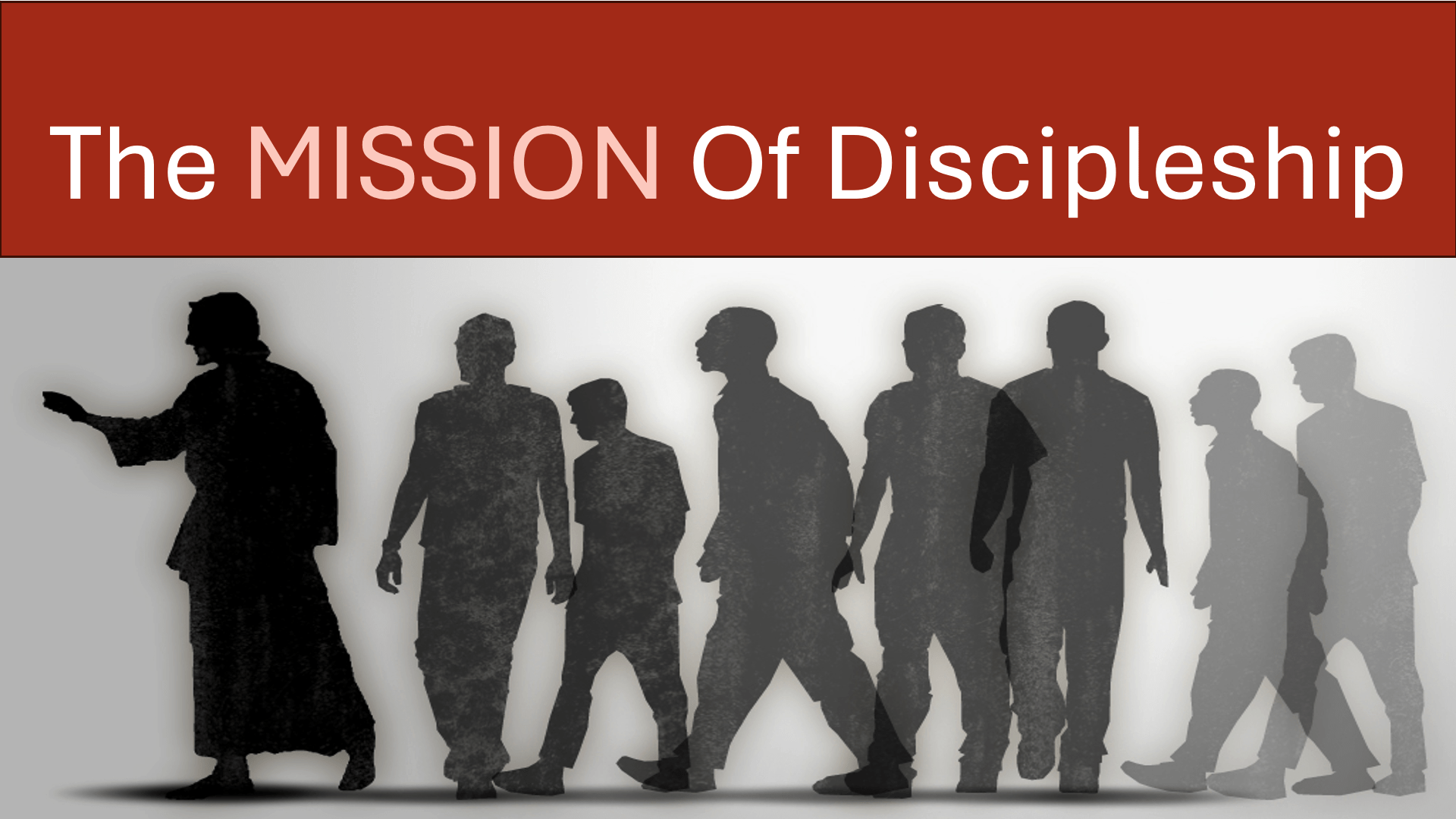Downloadable Files:
Text:
Restoring Discipleship
Lesson 4: The Progression Of Discipleship
Being a true disciple of Jesus Christ cannot be treated like a box that is checked off at some point in your life. Although there is a decision you must make to respond to Jesus’s call through the gospel to follow Him, it is a commitment to a life-long progression. In this progression, though, is the concept of progress. Every day, you must seek to make progress toward your goal of discipleship.
Ephesians 4:11-16
God has a plan for growth concerning the body of Christ that is outlined in this passage. This plan involves the growth of every individual part (member) of the body so the entire body can grow. Notice the characteristics God wants. He wants every member of the body (every saint/disciple) to be equipped for service in His kingdom. He wants every member to be united in the faith and knowledge of God’s Son. He wants every member to be growing into spiritual maturity that is measured by Christ’s fullness so they are like Him (Colossians 1:28). He wants every member to be so firmly grounded in the truth that they are not tossed and blown around by false teaching and human cunning. He wants every member to do his/her part (as much or as little as that may be) to help the overall growth of the body. To help accomplish these things, God has given apostles, prophets, evangelists, shepherds, and teachers (note that apostles and prophets were roles in the New Testament times but no longer exist, though they continue to impact through the writings of Scripture). Therefore, you should recognize that God expects His body to be progressively growing because every member of the body is growing! For, if a member of the body is not growing and working toward producing fruit, it is dying!
Ephesians 2:1-5
The progression of your discipleship began with a time when you were spiritually dead due to sin. At this stage, you lived in sin by violating God’s laws, followed the ways of this world rather than God’s ways, and submitted to Satan’s rule over your life rather than God’s rule. This period, therefore, was characterized by your own selfish desires in which you did whatever you wanted rather than being concerned for what God desires or for spiritual things (James 1:14-15; Romans 8:5-8). While you were in this state, you deserved to experience God’s wrath and were on a path that leads to Hell (Romans 2:6-11)! Thanks be to God that He provided His grace and mercy through His great love to rescue you and make you alive through Christ Jesus!
1 Peter 1:22-2:3
Those who have obeyed the gospel have been born again (John 3:3-7; Acts 2:37-41), going from spiritual death to life in Christ! We are like newborn infants spiritually at this point. While that is a wonderful occasion and an essential step in the progression of discipleship (Matthew 28:18-20; Mark 16:15-16), we are also very vulnerable and have a lot to learn about this new life in Christ at this point. So, this stage is often marked by ignorance and confusion (e.g. about many Bible teachings, how to grow spiritually, how to change old habits and lifestyles). We are also largely in a state of dependence on someone more spiritually mature to help guide us (like a newborn is dependent on his/her parents). However, we must continuously desire God’s word (like an infant desires milk), recognizing it provides all the nutrients necessary for continual spiritual growth and salvation!
1 John 2:12-14
It may be that this passage describes three stages of spiritual development (not necessarily physical ages): Little children, young men, and fathers. As we grow in Christ, this is the expected progression (just as it is the progression physically). Little children have experienced the joy of being forgiven and coming to know the Heavenly Father. These, though, must recognize that they are not mature in Christ and have much growing left to do, still being largely dependent on others to teach and train them. Next, young men (young adults) have learned to fight and conquer Satan so they are strong and God’s word remains in them. These have progressed significantly in their own maturity and faith but may not yet be knowledgeable and equipped to lead others, though attaining a significant ability to take care of themselves spiritually. Finally, fathers (parents) have known the One who is from the beginning. These have apparently grown into the maturity of a deep relationship with God themselves (including all that is involved in truly knowing God, 1 John 2:3-5; 3:16; 4:7, 13; 5:2-4, 20) and are able to help others do the same, being able to now take care of both self and others.
Hebrews 5:11-14
God expects Jesus’s disciples to make progress over time rather than to be lazy and stagnant! These should have been able to stand without depending on others to teach them and been in a position to teach and help others but had not made such progress. Similarly, although every disciple of Christ progresses at different speeds and every journey is unique, progress must be made toward spiritual maturity nonetheless! This maturity is seen through knowledge of God’s word, the practice of righteousness, fruit being produced in God’s kingdom, and being able to help others be disciples of Christ (1 Corinthians 3:1-4; 2 Peter 1:3-11; John 15:1-8; 2 Timothy 2:2).
Conclusion
God has designed discipleship to be a life-long journey. This can be seen throughout the lives of the original disciples of Christ as you read through the Scriptures (e.g. the life of Peter). Although you may find yourself at any stage at this present time, you must be committed to spiritual growth and pressing toward the maturity that can only be measured by the stature of Christ’s fullness! So, you must evaluate yourself to see where you currently are and determine to press further toward that maturity every day!



